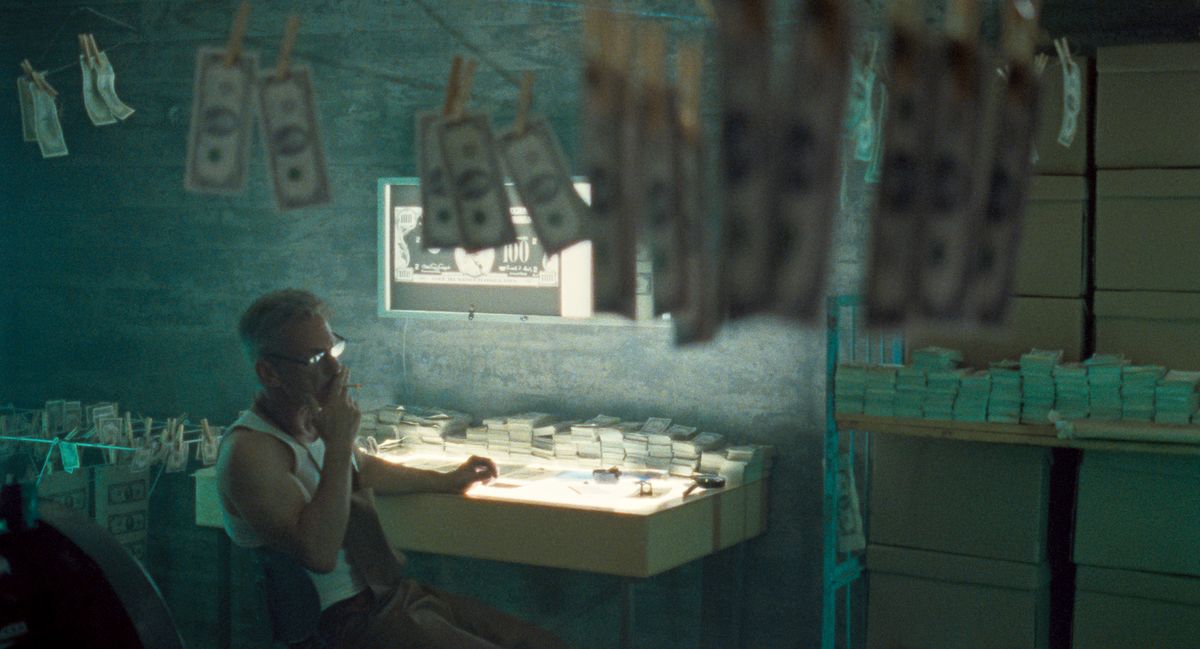Sean Penn’s ‘Flag Day’ paints flattened-out picture of larger-than-life con artist

In “Flag Day,” Sean Penn plays John Vogel, a con artist and arsonist whose own mother says he’d “burn down the world if he though it’d get him white mansions.” He’s also a loving father who lavishes love and a magical pull on his daughter Jennifer. As the film opens, Jennifer has been summoned to a meeting with a U.S. marshal (Regina King), who explains that John’s latest scam involved counterfeiting more than $20 million. Jennifer – played by Penn’s real-life daughter, Dylan Penn – asks to examine a bill. “It’s beautiful,” she whispers.
Directed by Sean Penn and based on Jennifer Vogel’s memoir “Flim-Flam Man,” “Flag Day” goes back in time to demonstrate the toxic but seductive pull that John exerted on his family. In evocative snippets – appropriately enough filmed at magic hour – a montage of images approximates memory that feels half-dreamt, half-recalled. The Vogel household is unstable, suffused with dysfunction and addiction.
When John leaves his family, Jennifer and her brother Nick (played later in life by Dylan’s real-life brother Hopper Penn) are stuck with their alcoholic mother. It’s inevitable that Jennifer will dabble in the same treacherous behavior as her dad: She becomes a punked-out teenager, firebug and pothead. She seeks out John, first as a kindred spirit, then as a fix-up project.
There are passages in “Flag Day” that recall Sean Penn’s direction of the magnificent 2007 film “Into the Wild,” which paid homage to another young person trying to find himself in escape, travel and hard-won self-discovery. He infuses the movie with rich textures redolent of its sweep from the 1970s to the 1990s: Photographed on 16mm film, “Flag Day” has the saturation and grain of a home movie writ large.
Penn himself provides just as much palpable richness as the film stock: Although this is Jennifer’s story, “Flag Day” truly comes alive when he’s on the screen, his weather-beaten face and quicksilver reactions giving his character just the right combination of menace and seedy enchantment. Although Dylan is undeniably lovely – she has the gait and posture of her mother, Robin Wright – she seems almost too pristine to inhabit Jennifer’s gradually hardening persona.
Despite the obvious father-daughter chemistry she shares with her dad, she’s never entirely believable, a shortcoming not helped by bad wigs and at least one totally unconvincing montage when she’s living rough among gutterpunks and drug addicts. That’s not to say Dylan isn’t a gifted actress: She shows assurance and promise here, and she can hold the camera with admirable aplomb. The weakness is more likely to reside in brothers Jez and John-Henry Butterworth’s script, which somehow reduces Vogel’s extraordinary, sharply observed and sometimes disarmingly funny story into something more formulaic and flattened.
Still, subtle flourishes and evanescent feeling abound throughout “Flag Day,” in which Vogel’s idealized vision of her father feels simultaneously shining and impossibly tarnished. As a director, Penn knows how to create arresting tableaus that draw the eye and spark the viewer’s own sensory past. As an actor, no one is better at finding honesty in the moment. Like the antihero at its center, the essence of “Flag Day” remains tantalizingly elusive, potently evoked but never fully realized.